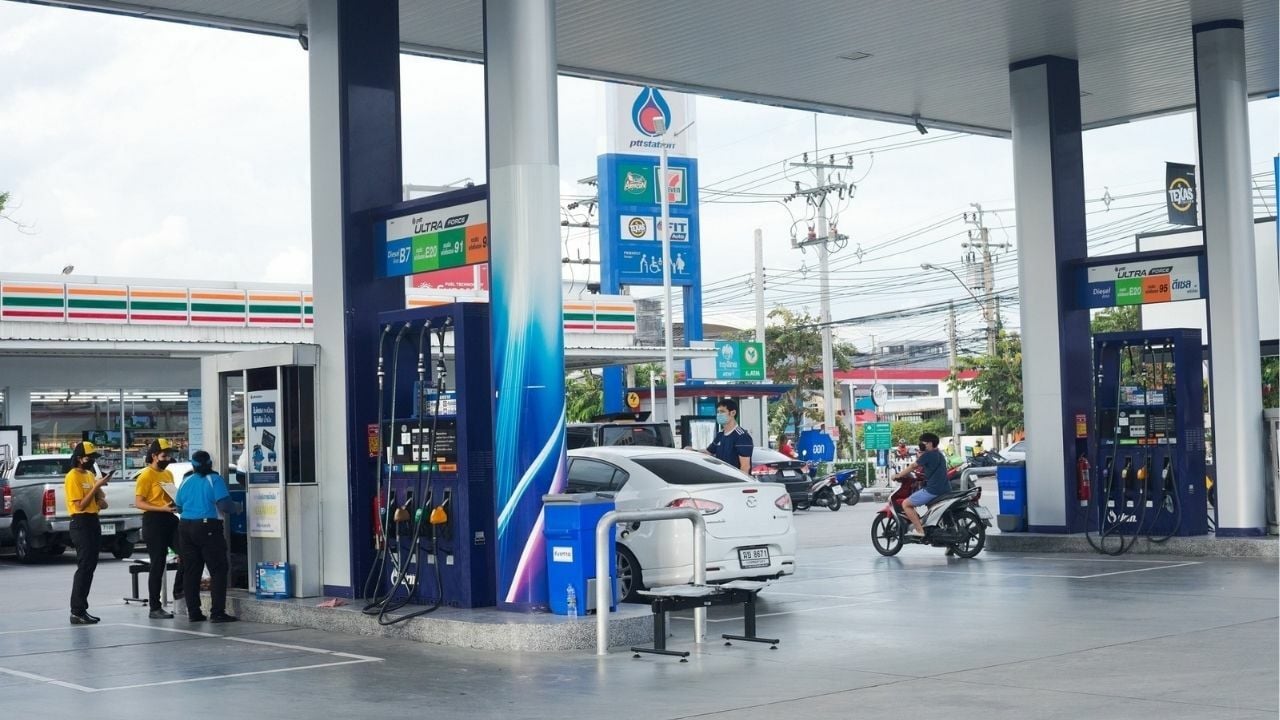PTT to cut costs amid US tariffs and oil price drop
Thai oil company unveils three-initiative strategy to reduce spending

National oil and gas company PTT Plc is preparing to tackle US tariffs and a decline in global oil prices by cutting costs and enhancing operational efficiency to improve profitability. The company is also facing challenges in the petrochemical and oil refining sectors.
PTT’s strategy includes three initiatives: Axis to reduce spending, D1 to foster asset synergy within the PTT Group and eliminate unnecessary costs, and Mission X to drive profit growth.
Under the Axis plan, PTT aims to maintain adequate cash reserves by cutting expenses by 11 billion baht annually from its subsidiaries between 2025 and 2029. Kongkrapan Intarajang, president and chief executive of PTT, stated that digital transformation will play a key role in supporting these efforts.

The D1 initiative focuses on the synergy of both physical and human assets to save 3 billion baht annually. Meanwhile, Mission X aims to boost operational efficiency and increase earnings before interest, taxes, depreciation, and amortisation (EBITDA) to 30 billion baht a year between 2025 and 2027.
Asset monetisation is also being considered to enhance earnings, with the company planning to sell parts of its assets and promote those with growth potential.
To date, PTT has generated 8 billion baht from asset monetisation and has set a target of 15 billion baht.

According to Thai Oil Plc, Thailand’s largest oil refinery by volume, global crude oil prices are expected to decline due to US President Donald Trump’s tariff policy, which has reignited trade tensions impacting international trade. Dubai crude oil reference prices closed at US$63.96 (nearly 2,100 baht) per barrel on Tuesday, May 20.
The trade policy from Washington is anticipated to slow economic growth, reducing demand for refined oil products like diesel and fuel oil in the industrial sector, said Nuttapol Nopparatwong, Vice President for Commercial Planning at Thai Oil. Despite the falling global oil prices, gross refinery margins (GRMs) are projected to improve from the first quarter of this year, reported Bangkok Post.
GRM, the difference between crude oil and refined oil prices, is a key indicator of refinery profitability. Nuttapol expects the average GRM to rise from US$3.5 per barrel in the first quarter, owing to a reduced supply of refined oil as refineries in the US and Europe close due to ageing facilities or financial difficulties.
Furthermore, an increase in commercial flights is anticipated to boost GRMs. Consumption of jet fuel and gasoline is predicted to rise between July and August, which is typically the travel season.
Latest Thailand News
Follow The Thaiger on Google News:


























